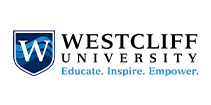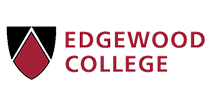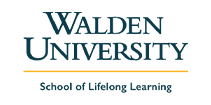How to Choose the Right Stream After Class 10: A Complete Guide
Class 10 is a key academic milestone, but do you know that what follows next is even more crucial? As students move to higher secondary education, choosing the right stream becomes a defining decision - one that sets the stage for future academic and career paths. The stream that the student subsequently chooses, whether to study science, commerce, arts or vocational, will dictate the structure for the student’s eventual education and career.However, choosing the appropriate stream often entails excitement as well as confusion. Also, a lot of decisions depend on the views of significant others, including parents, colleagues and society- which leads to more confusion. Selecting a stream is not merely a matter of marks achieved or trends; it is about better understanding yourself, the things you are interested in and where you imagine yourself in long term. Appropriately considering the stream after 10th is important because it can help you develop the right motivation to study, build your associated skill set, and keep you focused on a career space you are happy with.
In the following blog, we will consider some of the key points that you should consider before making a post-10th stream decision which truly aligns with your career goals and aspirations.
Why is Choosing the Right Stream Important?
What you choose to study after Class 10 is not just the subjects you will be studying over the next two years. It is a pathway that directly impacts your tertiary education, career prospects and, hopefully, your long-term job satisfaction. When you select the right stream, you will be able to build good academic foundations in the area you are most interested in and suited to.Making an informed choice can help:
- Prevent future regrets or changing courses that may result in a waste of your time and enthusiasm.
- Remain excited about your studies as you will have a genuine interest in the subjects based on the stream you selected.
- Weave your studies towards professional goals - engineering, law, design, business, social sciences. Provide access to specific areas that are developing or emerging careers, and you are good at or enjoy.
Overview of Streams After 10th
After your Class 10 board exams, there will be a number of streams that you can choose from. Each stream will have a different course of subjects, learning styles, and career options. So, it is important to understand what each stream aligns with to determine which is best suited for your goals, abilities, and interests.
1. Science Stream
If you thrive on logic, analysis, experimentation, and solving problems, the science stream is perfect for you. It is the stream designed for students who are looking for paths related to medicine, engineering, IT, research, or the pure sciences.
Core Subject Combinations:
- PCM - Physics, Chemistry, and Mathematics
- PCB - Physics, Chemistry, and Biology
- Optional subjects - Computer Science, Physical Education, or Informatics Practices
Career paths:
Engineering, Medicine, Biotechnology, Data Science, Architecture, and many more.2. Commerce Stream
Commerce is a good stream for students interested in business, management, economics, and finance. This stream is also ideal for students interested in starting their own business. This stream is best suited for students who love numbers, analysing data and working with budgets.Core Subject Includes:
- Accountancy
- Business Studies
- Economics
- Optional subjects - Mathematics, Entrepreneurship, or Informatics Practices
Career Paths:
Chartered Accountancy, Business Management, Economics, Finance, Marketing, and others.3. Arts/Humanities Stream
The Arts or the Humanities stream offers a broad and flexible range of subjects. These subjects are ideal for students who are inclined toward creativity, critical thinking, social issues and communications.Popular Subjects:
- History
- Geography
- Political Science
- Psychology
- Sociology
- Philosophy
- Literature
- Optional Subjects - Fine Arts, Music, Legal Studies, Home Science
Career Paths
Law, Journalism, Design, Civil Services, Psychology, Teaching, and Social Work are some of the common career prospects after this stream.4. Vocational and Skill-Based Courses
Alongside the more traditional academic streams, students can explore vocational courses. Vocational courses are developed to provide students with job-ready skills and practical training for the industry.Examples
- IT
- Healthcare
- Travel and Tourism
- Retail
- Agriculture
- Fashion
- Design
Career Paths
Immediate employment, entrepreneurship or advanced diploma or degree programs in the same area of study.Key Points to Consider While Choosing the Stream
Choosing the right stream after the 10th grade is not just about picking subjects - it is about matching your academic abilities, interests, and career goals. There are definitely some very important factors every student should think about before settling on their choice of stream. Here are the key factors that you should consider while selecting a stream for your career.
1. Identify Your Interests and Passion
Your interests will heavily influence your ability to be productive and successful in a certain stream. If you choose a stream that interests you, you will be able to tap into your passion for an extended period of time, so, at some level, you will be motivated and have academic satisfaction. Also, if you love what you're doing, you'll be able to stick it out even when the course load gets heavy. So, before you make a final decision on your choice of stream after 10th, think about:
- Which subjects do you actually like?
- Which of your activities or topics excites you and keeps you wanting to learn?
- Do you prefer solving problems, understanding human behaviour, or analysing business concepts?
Initially, it is essential to examine your academic strengths. Select a stream that works with rather than against your natural strengths to limit stress and underperformance. As you move forward in your studies, it is vital to understand your limitations earlier rather than later, as it will help you to make choices that are realistic and ultimately successful. Here's an example:
- If you are good at math and physics, Science may be the best-suited option for you.
- If you enjoy logical reasoning and financial concepts, Commerce may be the option for you.
- If you excel in writing, analysis, or creative thinking, the Arts may be best.
Think future-oriented, look into potential career choices within each stream and consider what kind of opportunities interest you. By taking a long-term approach when considering your streams, you may have a more realistic and practical option. In addition, a clearly matched career vision can create a sense of direction in your academic studies. So, ask yourself the following questions before deciding on the right stream:
- Where do I see myself in 5-10 years from now?
- What kind of work environment or lifestyle do I want?
- Which stream leads to the kind of career that I am interested in?
Each stream has compulsory and optional subjects. Knowing what's coming up will help you avoid surprises and prepare better. It also makes sure your learning style and mode of learning continue to match the teaching style and subjects in that stream. Therefore, make sure to be aware of the following:
- Know what subjects are included in the stream you are considering.
- Check how complex the syllabus is and the breadth of the material to be covered.
- Speak to seniors or teachers, or check textbooks to get an overview of the content.
Some undergraduate programs specify subjects needed for entry to specific courses. Choosing the right stream ensures you meet the requirements for your chosen college course later on. Avoiding mismatches now saves time later and does not lead to dead ends in your career. For example:
- Engineering courses require Physics and Math.
- Medical courses require Biology.
- Some commerce-related programs may require Math to be one of your subjects in Class 12.
Sometimes, talking with a professional allows us to identify our potential early, achieve clarity, and develop confidence sooner. Early professional advice makes answering questions clearer and confidence more likely. Receiving an external perspective can validate or, many times, challenge our first thoughts in a good way. Career counsellors can:
- Assist you in identifying your abilities and potential through aptitude and personality traits.
- Give you easy, objective advice based on your profile.
- Extend career options and streams of possibilities you might not have thought about.
It is acceptable to think about perspectives from parents and friends, but avoid letting their influence completely override your own strengths and goals. The educational stream decision is yours to make, with guidance and not a dictate. It is essential to be part of a decision; therefore, balance their opinions with your self-identity. In doing so, make sure:
- You are not going into a stream because your friend is also going into that stream.
- You are not surrendering to your parents' pressure without understanding your areas of aptitude.
The world is developing, and career prospects are as well. Understanding trends ensures that your decision is as future-proof as possible. If you choose a dynamic field that aligns with your stream, you will be ahead of your peers in tomorrow's job market. While making your decision on your stream, it is also a good idea to consider these factors:
- Which industries are emerging? Artificial Intelligence, Digital Marketing, Sustainable Development, or others.
- Which jobs have become prevalent that did not exist a decade ago?
- Which streams have the capacity to adapt in a changing landscape?
Common Mistakes to Avoid While Choosing a Stream
Selecting the incorrect stream can lead to confusion, frustration, and even a path in your career that you are unhappy with. In order to avoid these problems, here are some of the most common mistakes students make—and how to avoid them.
1. Choosing A Stream Based on Peer Pressure
The most common mistake is choosing a stream based on your friends' decisions. Just because your friends are taking a certain stream doesn't mean that one stream will be right for you, particularly if your interests and strengths are different. Your choice should be based on your own goals, not those of your friends.
2. Not Considering Your Academic Achievements
Many students do not think of their actual performance in the subjects when considering which stream to choose. For example, if you have done poorly in science or mathematics, choosing a PCM (Physics, Chemistry and Math) stream is not going to help you as a pathway to success; it will likely cause more stress, anxiety and poor grades. Always be honest when reflecting on your academic history.
3. Choosing a Stream Based on Popularity or Social Perceptions
Certain streams are regarded as more prestigious or of a higher social worth than others, leading some students to choose a stream based on social pressure. However, popularity is not an assurance of your achievement or enjoyment of the stream. Each stream and its associated pathway or career can provide great opportunities if you are willing to put the effort required into studying and finding success; you just need to find the right stream to suit you.
4. Not Thoroughly Researching Career Pathways
Selecting a stream without knowledge of where it can take you is risky. The majority of students do not research future study options and eligibility, let alone the professional possibilities that will be available, in effect, creating the possibility of dead ends or regrets later in life. Always map your stream and potential career goals based on potential long-term interests.
5. Underestimating the Value of Subject Combinations
Within each stream, certain typical subject combinations exist, but not researching how these subjects relate to one another or your future aspirations can be fatal to your success. For example, studying Commerce without Math may prevent you from having the option of studying finance or economics later. The more thought you use when making subject selections, the more advantage you will create for your future.
6. Avoiding Career Counselling & Professional Advice
Some students and parents avoid showing up for career counselling sessions, thinking they can successfully make accurate decisions themselves. Career counsellors have access to trained counsellors, access to aptitude testing results, and offer professional advice, which nobody else can provide. Career counsellors will ask questions related to your doubts and demonstrate through their own personalised support how you can see your future more clearly and avoid serious decision-making errors.
7. Choosing a stream without Self-Assessment
You may end up in a stream, but if you do not undertake any self-assessment, learning style, personality, and motivation framework within a particular stream, your future classroom study may not be useful. Articulating the types of questions you can ask yourself would include:
- What motivates me?
- Do I like practicality over theory?
- Have I thought about the realities in my thinking as to whether I want a structured job or one which provides me with greater freedom?
Tips to Make an Informed Decision While Choosing a Stream after 10th
Making the right decision after 10th grade does not have to be daunting if you use a systematic and considered approach. These points will help you gain clarity and confidence in the right stream for your future:
1. Take Aptitude and Interest Assessment Tests
An aptitude test will help you understand your inherent skills and strengths, and which subject or profession may suit you. An aptitude test is then best paired with an interest assessment exercise. These tools will give you a better understanding of the stream in which you would be best suited for your personality and academic intellect. Schools have access to free assessments, and the Internet also has several low-cost opportunities for schools to offer.
2. Research Thoroughly About All Streams
Do not merely go on hearsay; check it out for yourself.
- What subjects are included in each stream?
- How difficult are the subjects? What is the Future Scope of the stream?
- What are the professional opportunities?
- What do real people who went down these paths say?
3. Consult Teachers, Mentors, and Career Counsellors
Teachers and your other trusted mentors know your interests based on your school habits and strengths. Career counsellors have a professional perspective and match your profile with options and recommendations for career paths. By weighing both these pathways, you maximise informed perspectives to consider your options.
4. Attend Career Seminars and Webinars
Be on the lookout for career awareness sessions set up by the school or online career awareness sessions, industry webinars, or university open days. These will inform you of any emerging careers, what you should expect in reality, and how different streams integrate with what the future holds. Attending these types of sessions allows you to think about ideas that you may not have thought about as options.
5. Keep Long-Term Goals In Mind
Don't get tempted just to think about short-term convenience; think about your long-term benefits. Think about the types of work you want to do, the type of lifestyle that you are aspiring to, and the longevity or flexibility of the job you expect. Ideally, what you choose to do at this point will lead to your long-term goals.
Conclusion
Selecting the ideal stream after 10th grade competes with some of the most vital academic and vocational decisions you will ever make. It will create your foundation for higher education, career and personal development. While there may be some temptation to jump into a decision based on trends, peer pressure or assumptions, we encourage you to step back and spend time reflecting on your own interests, strengths, desired focus, and long-term goals. Use assessment tools, understand the vitality of subject combination and find professionals to assist you so you can use information to help inform your choice and execute it with confidence.Above all else, remember there is no such thing as a best stream, only the stream that is best for you. With the proper mindset and preparation, you can emerge from the stream you're passionate about with a successful and fulfilling future that you have developed through your own diligence, commitment and planning.
FAQs (Frequently Asked Questions)
Q1. What is the best stream after the 10th?
There is no best stream, as this ultimately depends on your personal interests, strengths, and future career goals. Science would be preferable if you want a technical or medical career, commerce for business or finance-related positions, and arts if you want a career in the creative, social, or administrative space.
Q2. If I choose the wrong stream, can I change it later?
In most cases, switching streams after Class 11 can be complicated and disruptive to your studies. This is why it is important to carefully consider this decision after the 10th, but some boards or schools may allow it under certain circumstances.
Q3. What if I’m confused between two streams?
If you're confused, you can investigate some aptitude tests and interest assessments or speak to the school counsellor to compare subjects and career options. Find the stream that fits your long-term life goals as well as your comfort level with the subjects.
Q4. Does choosing the Arts limit my career options?
Absolutely not! Arts will lead to various careers like law, journalism, psychology, civil services, education, design, languages, and much more. With the right approach, you can make a successful career in a field of your choosing.
Q5. Is Math a requirement with Commerce?
Math is not a requirement with Commerce, but it is highly recommended if you are looking for a career in finance, economics, data analysis or have an intent of taking highly competitive exams such as CA or CFA. Without taking Math, there may be limited options upon pursuing higher studies.
Trending Posts
-
Lovely Professional University (LPU) Online: Benefits, Courses, Tuition Fees, Admission Process
-
How an Online MBA Unlocks Your Career Potential in 2025 and Beyond
-
15 Top Online MBA Colleges in India in 2025
-
Exploring Career Paths after 12th Commerce: Courses, Degrees, and Career Prospects
-
High-Paying Government Jobs After B.Com. You Should Know About
-
IIIT Dharwad’s Online M.Tech in Data Science & Artificial Intelligence: A Complete Guide
-
VIT Directorate of Online Education: Courses, Eligibility, Admission Process, and Top Recruiters
-
NMIMS CDOE: Benefits, Courses, Tuition Fees, and Admission Process
-
DY Patil University COL Navi Mumbai: Benefits, Courses, Tuition Fees, Admission Process
-
Are Online MBA Degrees Valid in India? All You Need to Know About Them
-
The Future of IT Jobs in India: Top High-Paying Careers to Pursue in 2025
-
What’s Next After BCA? Top 10 Courses for Career Success in 2025
-
Thinking About an MA? Here's Everything You Need to Know Before Enrolling
-
Manipal University Jaipur Online: Courses, Admission, and Fees 2025
-
B.Sc. Explained: Courses, Specializations & Career Prospects






























































